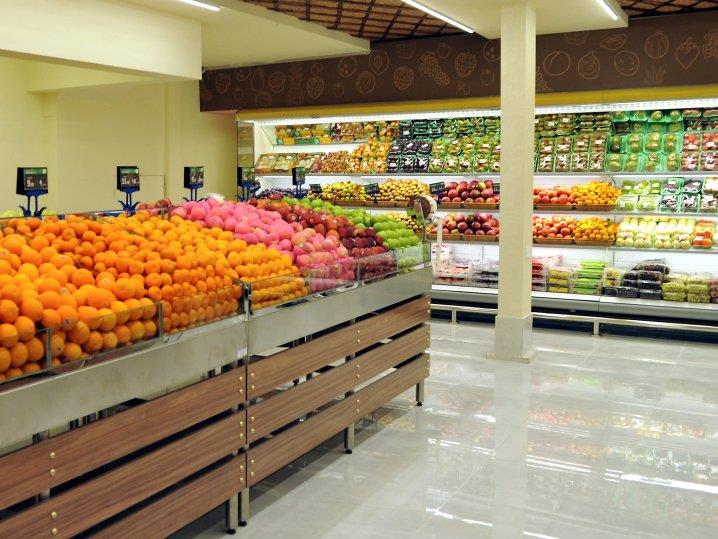
Qatar tops in Global Food Security Index
Qatar grabbed top spots in the 2017 Global Food Security Index. The country topped the world in one of the three core pillars of index, developed by the Economist Intelligence Unit (EIU) and American conglomerate DuPont.
Among the 113 countries, Qatar ranked top under the 'Affordability pillar with a ranking of 93.3 points. Singapore (91.3), US (85.9) and UAE (84.9) came second, third and fourth, respectively in the Global Ranking.
The 'Affordability pillar measures the ability of a country's consumers to purchase food, the country's vulnerability to price shocks and the presence of programmes and policies to support consumers when shocks occur.
The score is the weighted average of six indicators including GDP per capita of the country, food consumption as a share of household expenditure, proportion of population under global poverty line, presence of food safety net programmes of the country and access of finance for farmers.
The Index considers three core pillars of food security — Affordability, Availability, and Quality & Safety — across 113 countries. The index is a quantitative and qualitative benchmarking model, constructed from 28 unique indicators, that provides an objective framework for evaluating food security across a wide range of countries worldwide.
In terms of 'Quality and Safety pillar, Qatar stood top in the GCC region with a score of 74.1, followed by Kuwait (73.7), Oman (73.7) and UAE (68.6). Globally, Qatar slipped 4.7 percent under this pillar.
The ‘Quality and Safety, measures the variety and nutritional quality of the average diet of the country, as well as the safety diet. Under the ‘Availability pillar, which measures public expenditure on agriculture R & D, agriculture infrastructure; volatility of agriculture production, sufficiency of supply and food loss, Qatar stood at 63rd place globally.
In the overall ranking, Qatar stood at 29th position. The overall score is the weighted average of affordability, availability, quality and safety; and natural resources and resilience.
Although GCC nations have high food security rankings, their dependency on imports make them highly susceptible to unreliable supplies in the region, analysts at Marmore Mena Intelligence said.
Citing market data, they said food consumption in the GCC stood at 39 million metric tons (MMT) in 2014 and is expected to rise at a CAGR of 4.5 per cent until 2019 due to growing population and increase in tourists.
These factors will continue to drive the demand for imports in the future. High dependency on imports put forward crucial challenges like fluctuation in global food price and geopolitical rifts for GCC nations to tackle.
GCC nations have previously explored various strategies to protect them from vulnerability to food imports. Investing in foreign farmland is one of the most convenient option. Most of the land investments from GCC are focused towards countries like Sudan, Egypt, Ethiopia, Morocco, Philippines and Indonesia, according to Marmore.
Going forward, one of the most viable solution to safeguard supply from volatility in food prices and geopolitical risks would be to significantly boost the warehouse storage capacities.
The costs of infrastructure development and storage in this region will be lesser than the cost of increasing domestic production.
The government should aim at expanding their storage capacity to at least a year's consumption to ensure a more sustainable management of resources that would contain these risk to an extent.
Qatar has also planned to build $440m strategic food security facilities and warehouses at Hamad Port having capacity of providing stockpile of processed and stored food for 3 million people for two years, according to the Marmore.

Legal Disclaimer:
MENAFN provides the
information “as is” without warranty of any kind. We do not accept
any responsibility or liability for the accuracy, content, images,
videos, licenses, completeness, legality, or reliability of the information
contained in this article. If you have any complaints or copyright
issues related to this article, kindly contact the provider above.















Comments
No comment